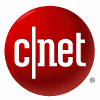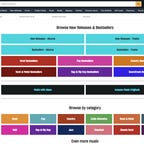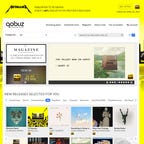
Although a digital music streaming platform like Spotify and Apple Music will bring you a ton of convenience, these platforms have their own limitations. A streaming platform will let you pay a monthly subscription fee to access their platform and listen to the music available in their library, but your favorite songs can vanish anytime, depending on the licensing. There is also no guarantee that all the songs you like are going to be available on that platform when you sign up. That's just one of the reasons it makes more sense to buy and own your music, either physically or from a digital music store.
When you buy digital music files, such as MP3 or FLAC, there are key benefits. For hardcore music lovers, keeping the music you buy forever is important, and that's what you get with digital music stores. Sure, you could buy CDs and rip the music the old-fashioned way, but where do you then keep the physical discs? Online music stores offer instant downloads after your purchase -- no need to bother with a physical disc -- and there's often a choice of different formats. If you want to save space and (maybe) money, lossy MP3s or AAC might be for you. If space constraints aren't a concern, most sites also offer lossless FLAC or ALAC versions for a noticeable increase in quality. (They usually cost the same as MP3s.)
Whether you're looking to buy a music single or a whole album, and across a variety of genres, I've compiled a list of the best digital music store options on the market. I've included both the biggies -- iTunes and Amazon -- and some of my personal favorites, including Bandcamp and Qobuz. If you want to play the music you buy, most stores offer both Android and iOS apps, or you can just use the native music apps on your phone.
Average cost per album: $10
Maximum bit rate: 256Kbps (AAC)
iTunes may no longer be the star of Apple's lineup, given that Apple Music is the company's focus right now, but it's still one of the biggest digital marketplaces. iTunes still sets the standard for lossy music downloads, and its catalog should furnish all but your most obscure needs. Technically iTunes doesn't sell MP3s. Instead, it sells songs in its own AAC format, which can be read by almost every modern player.
If you use MacOS Catalina or above you can access the marketplace from Music > iTunes Store. If you want to download lossless files keep in mind you will need a Music membership, but you won't be able to keep the music if your subscription ends.
Photo Gallery 1/1
Average cost per album: $10
Maximum bit rate: 320Kbps, Lossless (up to 24kHz)
With the support of many indie music labels, Bandcamp (now a part of Epic Games) is perhaps the best alternative to iTunes or Amazon, particularly if your tastes run to the more esoteric. The site enables you to download in whichever format you like (MP3, FLAC, Apple Lossless) and seemingly as many times as you like, without paying extra. In addition, the site runs regular Bandcamp Friday events, which give 100% of the proceeds to the artist.
Average cost per album: $10
Maximum bit rate: 256Kbps
If you're an Amazon Prime member, Amazon Music makes a lot of sense. You get a (limited) streaming service and a music store to buy MP3s from, in addition to streaming and automatic rips of physical discs that you buy. The digital music homepage is fairly drab -- just a bunch of blocky buttons instead of cover art -- and includes prominent links to Amazon Music Unlimited streaming.
Note that although Amazon scuttled its "digital locker" service that stores your MP3s, the MP3s you buy from Amazon will still be available for streaming and download.
Average cost per album: $10 (CD quality), $15 (24-bit)
Maximum bit rate: Lossless (up to 24/192)
If you're only interested in high-quality downloads -- and by this I specifically mean 24-bit hi-res -- the Qobuz download store is the cheapest. Like the Qobuz music streaming service, it caters to a wide variety of music genres, from pop to jazz to death metal to whatever you can think of. The site also offers sales on new releases including a recent Metallica promotion. If you're an ultra-keen audiophile you can sign up for the $180-a-year Sublime streaming package, which also gives you discounts of up to 60% on Hi-Res downloads.
Average cost per album: $10
Maximum bit rate: 320Kbps, Lossless (up to 24kHz)
If your tastes run to dance music with a sprinkling of indie, then you'll find a lot to love about Bleep. The site also has a good selection of 16-bit and 24-bit FLACs that aren't subject to the price hikes of some competitive vendors.
Previously, I recommended 7Digital for its wide selection of MP3s (and also FLAC files), but the site hasn't been updated for some time. While the company has been acquired by music licensing firm Songtradr, the store's front page hasn't changed in three years and a search for new releases (Bad Bunny, Lizzo, Gorillaz, etc.) comes up empty. It's yet to be seen what the acquisition will bring, as 7Digital was once a great resource for both music discovery and cheaper downloads. Representatives for 7Digital did not respond to my request for more information.
Despite the rise of streaming, millions of MP3s are still available for sale and the number of tracks is growing all of the time. All of the stores listed here enable you to either download songs legally to a computer or directly to your phone -- and most offer dedicated apps for Android. Be aware that due to Apple restrictions, iOS users may not be able to buy music from sources other than iTunes on their phones.
Google Play Music stopped selling MP3s in late 2020 as the company moved to the streaming-only YouTube Music. All of the above services offer an excellent alternative to Google Play Music, and some such as Bandcamp offer higher-quality lossless for the same price. One feature that YouTube Music did carry over from Google Play Music is the music locker, which lets you upload your own music library.
MP3 is known as a "lossy" format because it removes audio information in order to reduce file sizes, even at the maximum 320kbps rate. By comparison, FLAC is a "lossless" format because it doesn't remove info and instead compresses music in a similar way to a ZIP file. As a result, a FLAC sounds better than an MP3, especially one that's been ripped at a low 128-kbps bit rate.









 Add Category
Add Category

